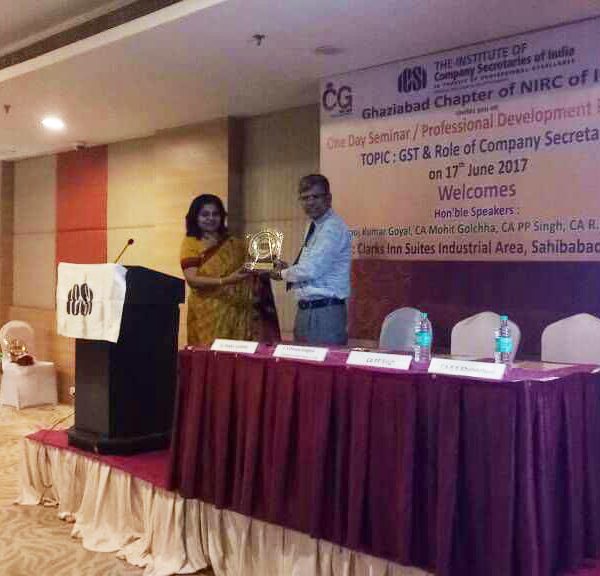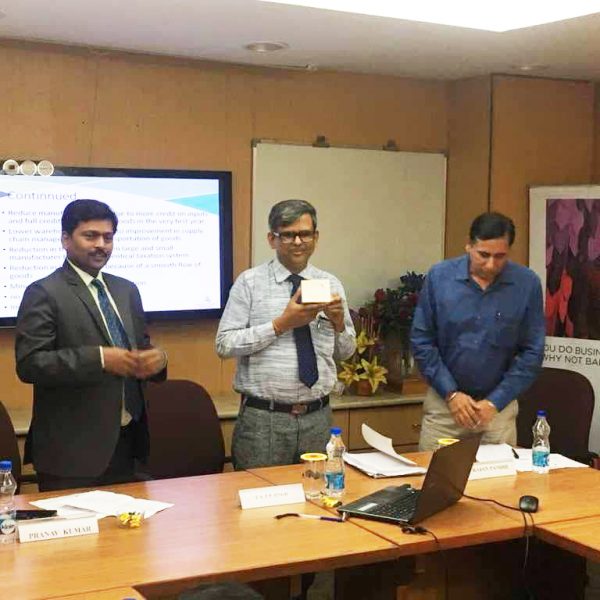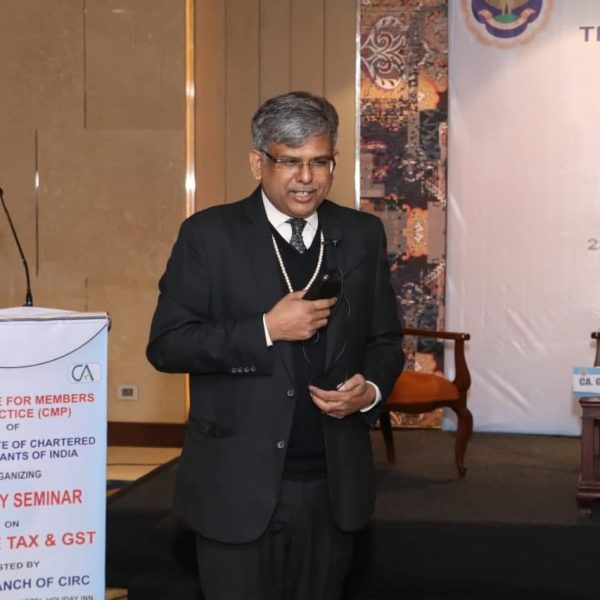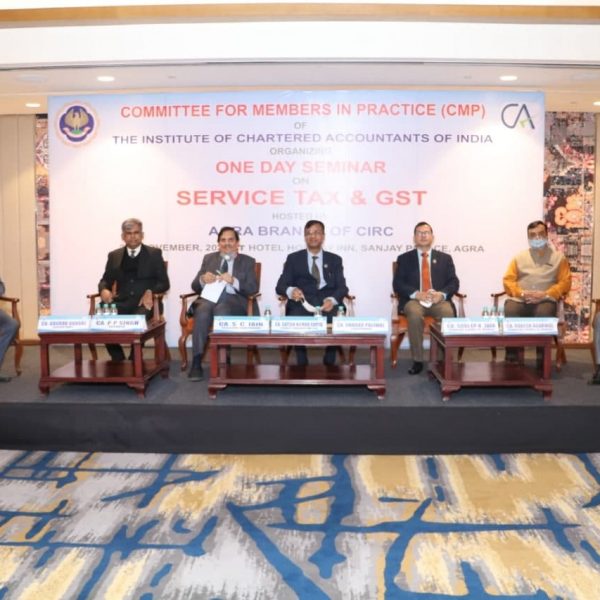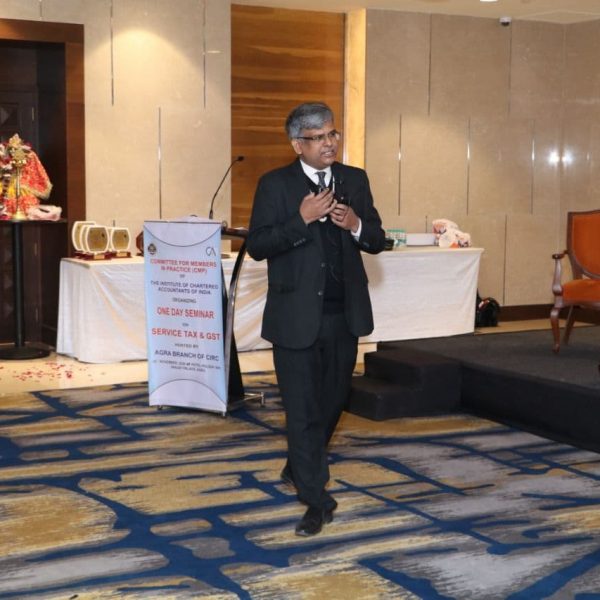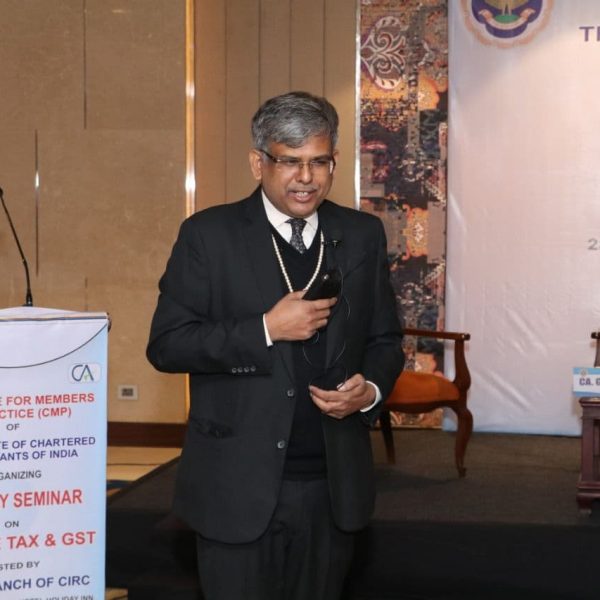Books of account and their Evidentiary value for charging a liabilities
Entries in books of account including those maintained in an electronic form when relevant:
Entries in books of accounts including those maintained in an electronic form, regularly kept in the course of business, are relevant whenever they refer to a matter into which the Court has to inquire, but such statements shall not alone be sufficient evidence to charge any person with liability. section 34 of the Indian Evidence Act.
Illustration:
A sues В for Rs. 1,000 and shows entries in his account books showing В to be indebted to him to this amount. The entries are relevant, but are not sufficient, without other evidence, to prove the debt.
Comments: section 5 to 55 of the Indian Evidence Act 1872 deals with relevant facts. Sections 32 and 33 of the Indian Evidence Act provide for the relevancy of statements made by a person who is a deed or cannot be called before the court. Section 34 on the other hand, provides that entries in books of account including those maintained in an electronic form regularly kept in the course of business, by a person, alive or dead, are relevant, whenever they refer to a matter into which the court has to enquire. Section 34 is an exception to Section 21 of this Act which provides that a person cannot make evidence for himself. Relevancy of books of account only when
- books of account including books in an electronic form regularly kept in course of business. Regular updates of books of account are essential to make them relevant.
- Entries kept in such books are relevant only relating to matters in issue.
- Such entries in the books of account alone are not sufficient to charge a person with liability.
Where, for example, A sues В for Rs. 1000, and shows entries in his account books showing В to be indebted to him for this amount. The entries are relevant but are not sufficient without other evidence to prove the debt. Entries in account books regularly kept in the course of business are admissible though they by themselves cannot create any liability.
Principle:
As per this section, the entries in the books of account are relevant, but it is not sufficient to charge any person with liability unless some independent evidence is given. The evidentiary value of such entries of account books depends on corroboration by some other evidence in spite of the entries are regularly kept and mentioned by the writer “who has full knowledge, no motive to falsehood, and there is the strongest improbability of untruth.” due to section 34 original entries in books of account alone would not be sufficient to charge any person with liability. Books of accounts are relevant persuasive evidence but not conclusive evidence to charge a person with liability.
In other words, the entries in the books of account must be supported by other corroborative evidence and such corroborative evidence must have minimum probative value. This corroborating evidence may be in any form like receipts or payment vouchers, invoices or bills of supply, e-way bills, consignment notes, delivery challans or other oral evidence of witnesses having personal knowledge of the affairs of the transactions such as statements of the driver, transporter, store in charge, gatekeeper or other parties. “The principle is to admit only such statements recorded by a party on his own behalf as by their nature and circumstances are ordinarily beyond his power to temper with undiscovered, to the purposes of a particular case.”
Books of Accounts:
The term ‘book’ ordinarily means a collection of sheets of paper bound together in one volume with the intention that such binding shall be a permanent record. Unbound sheets of paper are not books of account and cannot be relied upon. But two spiral notebooks and two spiral pads are regarded as books but not loose sheets contained in the two files.
It would not be correct to say that an entry must necessarily be made in the book of accounts at or about the time the related transaction takes place so as to enable the book, to pass the test of “regularly kept.” Under the Bankers Books Evidence Act 1891 the Banker’s books include ledgers, day books, cash books, accounts books and other records used in the ordinary business of the bank whether those books are in written form or are kept on microfilm, magnetic tape or any other form mechanical, or electronic data retrieval mechanism.
Books of account under GST:
As per section 35 (1) of the CGST /SGST Act, Every registered person shall keep and maintain, at his principal place of business, as mentioned in the certificate of registration, a true and correct account of—
- production or manufacture of goods;
- inward and outward supply of goods or services or both;
- Stock of goods;
- input tax credit availed;
- output tax payable and paid; and
- such other particulars as may be prescribed
As per rule 56-58 certain books of account prescribed such as every registered person shall keep and maintain, in addition to the particulars mentioned in sub-section (1) of section 35, a true and correct account of the goods or services imported or exported or of supplies attracting payment of tax on reverse charge along with the relevant documents, including invoices, bills of supply, delivery challans, credit notes, debit notes, receipt vouchers, payment vouchers and refund vouchers. Further, as per rule 56(2) every registered person, other than a person paying tax under section 10( section 10 cover composition scheme taxpayer), shall maintain the accounts of stock in respect of goods received and supplied by him, and such accounts shall contain particulars of the opening balance, receipt, supply, goods lost, stolen, destroyed, written off or disposed of by way of gift or free sample and the balance of stock including raw materials, finished goods, scrap and wastage thereof. As per rule 56(3) Every registered person shall keep and maintain a separate account of advances received, paid and adjustments made thereto. As per rule 56(4) every registered person, other than a person paying tax under section 10, shall keep and maintain an account, containing the details of tax payable (including tax payable under reverse charge ), tax collected and paid input tax, input tax credit claimed, together with a register of tax invoice, credit notes, debit notes, delivery challan issued or received during any tax period.
Account book regularly kept:
The books of account regularly kept in the course of business, though relevant, are not alone sufficient to charge any person with liability. It is normal that an account book kept in the regular course of business is merely a compilation of all the details of his dealings from day to day and is practically a summary of such transactions written up in invoices, bills of supply, payment or receipt vouchers, etc. “The words ‘regularly kept’ are not synonymous with ‘correctly kept’ in accordance with a certain fixed method or form referring to a system of book-keeping.” The Privy Council has laid down that “the admissibility of books of account regularly kept in the course of business is not restricted to books in which ‘entries have been made from day to day or from hour to hour, as transactions have taken place.
The time of making the entries or periodicity may affect the value of books of account but should not become irrelevant if they have been made regularly in the course of business afterwards, say weekly basis in the case of small business .” It is true that no particular form is prescribed for an account book to be maintained, but it should be a regular and usual account book. Even the plaintiff’s own testimony on oath in support of the entries in his books of account can be treated as sufficiently corroborative and to faster the defendant with liability.
Books of account under Income tax: As per section 2(12A) books or books of account” includes ledgers, day-books, cash books, account-books and other books, whether kept [in the written form or in electronic form or in digital form or as print-outs of data stored in such electronic form or in digital form or in] a floppy, disc, tape or any other form of an electro-magnetic data storage device;[ section 2(12A)Inserted by the Finance Act, 2001, w.e.f. 1-6-2001.]
Circular no.14/2001 explains the new clause 12A to section 2 as per para “5.1 With the passing of the Information Technology Act, 2000, the Act has provided definitions of ‘books of account’ and ‘document’ in section 2 of the Income-tax Act, so as to include electronic records within the meaning of these terms.”
Books of account v/s documents:- these two do not carry the same meaning and define separately under section 2 (12A) and section 2 (22AA) respectively. As per section 2 (22AA) document” includes an electronic record as defined in clause (t) of sub-section (1) of section 2 of the Information Technology Act, 2000. section 68 is applicable to credit entries in the books of accounts but not applicable in respect of any entry in documents DY.CIT Vs RAJA UDAY SHANKAR (2006) 7 SOT 680(Bang)
Diary:- No doubt entries by themselves were not enough to proceed against the assessee if the entries were explained and corroborated by the author thereof. However, in case the circumstances justify drawing of an inference against the assessee, the burden was on the assessee and in absence of any reason, the same could be acted upon. [Para 11] CIT Vs. Mukta Metal Works [2012] 20 taxmann.com 774 (Punjab & Haryana) ]
A diary is not a regular book of account in general, but where the diary is maintained as a memorandum book it will be treated as a book for section 68 purpose. ITO Vs Chikkalingaiah (2006) 9 SOT 786 (Bang).
Addition under section 69A could not be made in hands of the assessee merely on basis of entries in a diary impounded during a survey of a society doing banking business showing receipts of certain undisclosed money from various depositors including the assessee. Abhay Kumar Bharamgouda Patil Vs. ACIT [2018] 96 taxmann.com 377 (Panaji – Trib.)
Without corroborative evidence to prove the authenticity of the diary seized during the search, Assessing Officer could not make additions to the assessee’s income on basis of notings in the diary of a third party by making presumptions as per section 292C.Smt. Harmohinder Kaur Vs. DCIT Central Circle-II, Jalandhar [2021] 124 taxmann.com 68 (Amritsar – Trib.)
Statement during the survey: statements given during the course of the survey have no evidentiary value as held by Hon’ble Madras High Court in the case of CIT v. S. Khader Khan Son (2008) 300 ITR 157, which has since been confirmed by Hon’ble Supreme Court in the very same case reported in 352 ITR 480.
Entries in the loose paper/sheets:
Hon’ble Supreme Court in the case of Common Cause (A Registered Society) v. Union of India [2017] 77 taxmann.com 245/245 Taxman 214/394 ITR 220. Held that entries relied on in these loose papers and electronic data were not regularly kept during the course of business, such entries were discussed in the order passed in Sahara’s case by the Settlement Commission and the documents have not been relied upon by the Commission against the assessee, and thus such documents have no evidentiary value against third parties. Further Hon’ble Supreme Court has held in the case of CBI v. V.C. Shukla AIR 1998 SC 1406 that entries in loose papers/sheets are irrelevant and not admissible under sec. 34 of the Indian Evidence Act and only where entries are found in books of account regularly kept, those are admissible.
Whether balance sheet, profit and loss accounts are books of accounts?
Books of account do not include balance sheet, profit and loss account as decided in the case of JK Industries ltd Vs. UOI (2007) 80 SCL 283 (SC)/ CIT Vs Taj Borewells (2007) 291 ITR 232 (MAD HC).
Requirement of books of account under income tax: As per section 44AA of the income tax act maintenance of accounts is required by certain persons carrying on profession or business. Refer to section 44AA (1) whereunder “Every person carrying on legal, medical, engineering or architectural profession or the profession of accountancy or technical consultancy or interior decoration or any other profession as is notified by the Board in the Official Gazette shall keep and maintain such books of account and other documents as may enable the Assessing Officer to compute his total income in accordance with the provisions of this Act.”
Books of account under the companies act 2013: as per section 2(13) “books of account” includes records maintained in respect of—
(i) all sums of money received and expended by a company and matters in relation to which the receipts and expenditure take place;
(ii) all sales and purchases of goods and services by the company;
(iii) the assets and liabilities of the company; and
(iv) the items of cost as may be prescribed under section 148 in the case of a company which belongs to any class of companies specified under that section;
Under LLP Act 2008 as per section 34 (1) The limited liability partnership(LLP) shall maintain such proper books of account as may be prescribed relating to its affairs for each year of its existence on the cash basis or accrual basis and according to a double entry system of accounting and shall maintain the same at its registered office for such period as may be prescribed.
Charge a person with liability:
Entries in books of account regularly kept in the course of business through relevant corroborative evidence and mere production and proof of an entry are not by itself sufficient to charge a person with liability. There must be some independent evidence to prove the transaction. Where the principal amount of the claim is disputed by the debtors, creditors have to prove the liability by adducing independent evidence such as payment from bank accounts, copy of the agreement, invoice, copy of consignment notes, e-way bill, confirmation of goods received by another party etc mere production of book entries will not be sufficient.
Corroboration is the best effort to prove the transaction by which a person may be charged with liability. Certified copies of the statement of account under section 4 of the Bankers’ Books Evidence Act corroborated by an affidavit of a person are sufficient to charge debtors with liability.
Evidentiary value of Books of accounts:
Where accounts books were maintained properly and regularly, their veracity could not be doubted on the ground that the day books supporting ledger entries and that the person who made said entries in ledger books were not produced. The statement of the appellant showing that accounts were maintained by his father till 1959 and thereafter by him for every year separately were submitted to the Income Tax Department. The said facts were not challenged in cross-examination. In the said ledger for each year, there is an entry regarding receipts of rent in question. The statement of the appellant was upheld by the trial court and appellate court. It was held that books were maintained properly and regularly and their veracity cannot be doubtful.
Law of presumption under income tax: presumption in respect of survey operation is prescribed in section 292C. as per section 292C of the income tax act 1961 the books of account and other evidence found during the course of the survey shall be presumed to belong to the person who has been surveyed and the contents are true. The presumption prescribed in section 292C is a rebuttable presumption. Extract of section 292C as under:
“Where any books of account, other documents, money, bullion, jewellery or other valuable article or thing are or is found in the possession or control of any person in the course of a search under section 132 or survey under section 133A, it may, in any proceeding under this Act, be presumed—
(i) that such books of account, other documents, money, bullion, jewellery or other valuable article or thing belong or belongs to such person;
(ii) that the contents of such books of account and other documents are true; and
(iii) that the signature and every other part of such books of account and other documents which purport to be in the handwriting of any particular person or which may reasonably be assumed to have been signed by, or to be in the handwriting of, any particular person, are in that person’s handwriting, and in the case of a document stamped, executed or attested, that it was duly stamped and executed or attested by the person by whom it purports to have been so executed or attested.”
Presumption prescribed under 132(4A) of the Act: Where any books of account, other documents, money, bullion, jewellery or other valuable article or thing are or is found in the possession or control of any person in the course of a search, it may be presumed—
(i) that such books of account, other documents, money, bullion, jewellery or other valuable article or thing belong or belongs to such person;
(ii) that the contents of such books of account and other documents are true; and
(iii) that the signature and every other part of such books of account and other documents which purport to be in the handwriting of any particular person or which may reasonably be assumed to have been signed by, or to be in the handwriting of, any particular person, are in that person’s handwriting, and in the case of a document stamped, executed or attested, that it was duly stamped and executed or attested by the person by whom it purports to have been so executed or attested.]
such presumption can be used against the person from whom documents were seized as held by the Pune Bench of the ITAT in the case of Pradeep Amrutlal Runwal v. Tax Recovery Officer [2014] 47 taxmann.com 293/149 ITD 548.
Conclusion: unless specific presumptions in law under a particular statute about correctness and truthness of entry in books of account such as books found in search /survey operation and that too a non-rebuttable presumption, entry in books of account can’t be the sole basis to fix liabilities as per section 34 of the Indian Evidence Act 1872.

